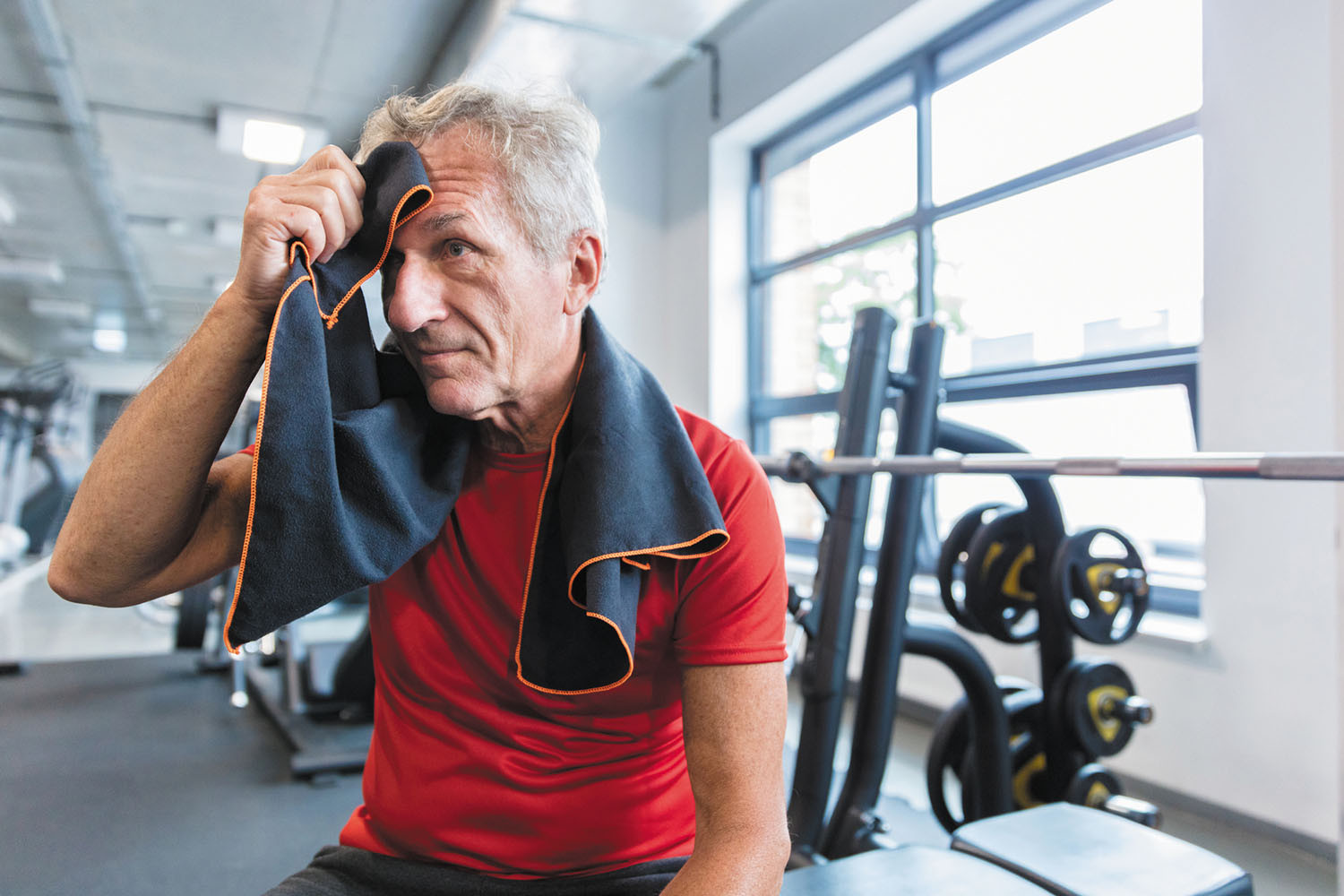Why am I so tired after exercising?
On call

Q. I used to get invigorated after exercising. Now, if I exercise three days in a row, I actually feel more fatigued the rest of the day. What might have changed?
A. With so much emphasis placed on increasing physical activity, we hear little about the downside of doing too much.
Overtraining is the point at which you train so hard and for so many hours that recovery does not occur after regular periods of rest. It's a problem that competitive and recreational athletes sometimes face, but it can affect regular people too.
For serious athletes, optimal performance demands a balance of extreme effort and recovery. Therefore, they must expend a tremendous amount of energy on some days, along with adequate, but not excessive, rest days or at least time spent exercising with less intensity.
But what about the average man who just wants to increase his fitness?
I am not an athlete and don't compete in events. However, I exercise almost daily, mostly because I feel good while doing it. I really miss it if I go more than one day without working out. But if I overdo it, or don't occasionally skip a day, I sometimes feel fatigued either after my workout or later in the day. When that happens, I simply adjust my workout routine in terms of when and how often I exercise and that usually fixes the problem.
While fatigue is often the main symptom of overexercising, people might experience injuries, aches and pains, anxiety, irritability, and restless sleep. Too much exercise also can lessen sexual desire.
Because many health issues can cause these problems, you should examine what else could cause your post-exercise fatigue, such as anxiety, depression, an unhealthy diet, or poor sleep. Some heart and blood pressure drugs, like beta blockers, also can make you feel sluggish and less energetic after exercise.
I suggest taking some time off. Spread out your usual exercise days and see if that improves your condition. If not, make an appointment with your doctor.
Besides reviewing your medication, your doctor might suggest blood tests to look for other common causes of fatigue, including anemia, an underactive thyroid, liver or kidney disease, or an imbalance of blood electrolytes.
Achieving a higher level of fitness requires pushing yourself physically. However, too much exertion breaks down muscles, uses lots of energy and makes you weak. It is the rest and recovery periods that allow you to get stronger. In general, it's best to limit intense aerobic exercise to no more than three days in a row, and for resistance training the intervals of muscle rest be no more frequent than every other day.
Image: © izusek/Getty Images
About the Author

Howard E. LeWine, MD, Chief Medical Editor, Harvard Health Publishing; Editorial Advisory Board Member, Harvard Health Publishing
Disclaimer:
As a service to our readers, Harvard Health Publishing provides access to our library of archived content. Please note the date of last review or update on all articles.
No content on this site, regardless of date, should ever be used as a substitute for direct medical advice from your doctor or other qualified clinician.













